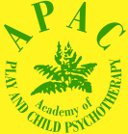Do you know the importance of self-awareness and how a lack of it can be restored through play therapy?
 Self-Awareness: Children lacking in self-awareness may suffer difficulties on physical, cognitive, emotional and social levels. For example, children suffering from a very traumatic hospitalisation may be unable to manage mainstream schooling without continuous 1:1 adult support.
Self-Awareness: Children lacking in self-awareness may suffer difficulties on physical, cognitive, emotional and social levels. For example, children suffering from a very traumatic hospitalisation may be unable to manage mainstream schooling without continuous 1:1 adult support.
They can be physically weak and very clumsy, finding it difficult to know where their physical body begins and ends. They live very much in the moment, seemingly unable to plan how to complete all but the simplest of tasks and at the mercy of sudden mood swings. They are completely unable to understand the perspective of others and consequently had difficult relationships with both their teachers and peers.
Play therapy allows children freedom to play as they wish in an environment where the therapist will keep them safe, physically and emotionally. A lot of play is physical, such as building towers with large foam blocks and throwing cushions. This enables them to begin to reconnect with and a better awareness of what their bodies are doing enabling them to better able to manage their physical environment. They become able to play in the sand without accidentally sweeping it all over the floor!
New career, new skills: Train as a Certified Practitioner in Therapeutic Play Skills or as a Certified Play Therapist so that you can communicate with and heal the children, when they chose these media.
Ten conveniently located training centres throughout the UK. Courses start twice a year.
More details: www.playtherapy.org.uk
Become registered to work therapeutically with children: See why being registered with PTUK will enhance your career - http://www.playtherapyregister.org.uk/
E-mail: This email address is being protected from spambots. You need JavaScript enabled to view it.
Tel: 01825 761143


 'New Directions in Child Protection and Wellbeing: making a real difference to children's lives' on Sun 12th - Wed 15th April 2015
'New Directions in Child Protection and Wellbeing: making a real difference to children's lives' on Sun 12th - Wed 15th April 2015 